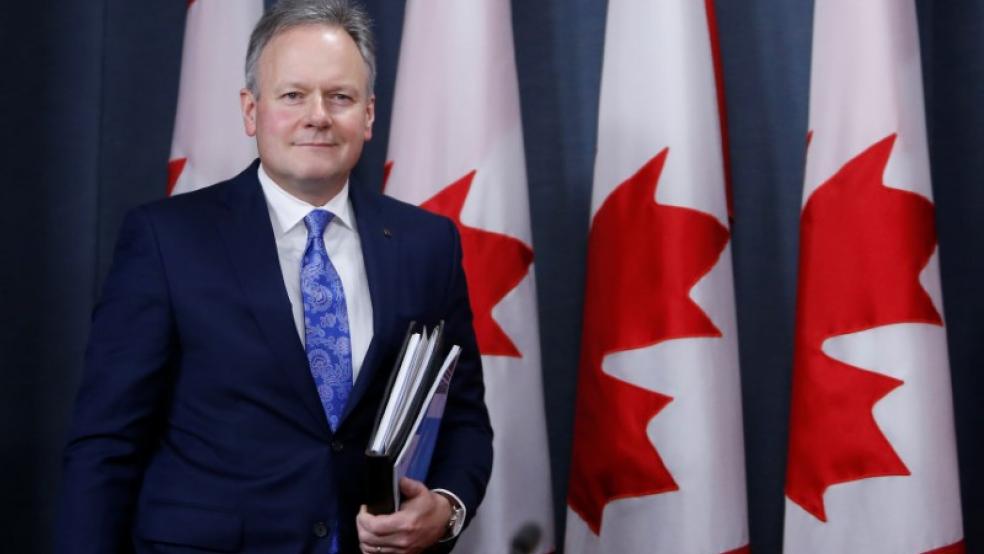OTTAWA/BENGALURU (Reuters) - The Bank of Canada is likely done raising interest rates this year, a Reuters poll of primary dealers showed on Thursday, though the central bank is seen charting a more aggressive tightening path for 2018 than had been anticipated.
The Bank of Canada surprised many with a rate increase on Wednesday, its second this year, and left the door open to further hikes amid strong economic growth that has made Canada a leader among its industrialized peers.
The median forecast among 10 of Canada's 11 primary dealers that deal directly with the Bank of Canada at debt auctions is for the central bank to wait until the first quarter of next year to hike again.
That will give the central bank time to see how its two back-to-back rate hikes are absorbed by the economy as well as heavily indebted consumers.
There is a risk the bank could increase rates for a third time in 2017 if economic data continues to be strong, forecasters said, with 4 primary dealers expecting the bank will raise again in the fourth quarter.
"It really very much depends on how the data pan out over the next six weeks or so," said Benjamin Reitzes, senior economist at BMO Capital Markets.
Though BMO expects the central bank's next move to be in the first quarter of 2018, further strong performance from the Canadian economy would mean "the door is wide open for October, clearly," said Reitzes.
Respondents put the median probability of the bank hiking at its next meeting in October at 30 percent, roughly in line with market odds of 35 percent.
The Bank of Canada's overnight rate is now seen rising to 1.75 percent by the end of next year, 25 basis points higher than economists had expected by that time in a wider Reuters poll done last week.How fast the Bank of Canada can raise rates in 2018 will also depend on the Federal Reserve being in tightening mode next year, economists said. If the U.S. central bank is not raising rates at the same time, that could drive the Canadian dollar up too far and undermine the economic outlook, said Stefane Marion, chief economist at National Bank Financial."The Bank of Canada is going at it alone where the Fed seems to be sidelined for the time being, which is unusual," Marion said.Dovish comments from Fed policymakers earlier this week reduced the likelihood of another rate hike south of the border this year in the midst of weak inflation data.The Bank of Canada will want to wait to see what the Fed does this year before it decides to move again, said CIBC Capital Markets senior economist Andrew Grantham, who expects the bank to pause until the second quarter of 2018."Our view is still that they are going to take it slow, and the reason why we expect that even though the statement was kind of on the hawkish side is that the Canadian dollar has appreciated quite a bit," said Grantham."That adds to the slowing impact that these rate hikes will have on the economy." The Canadian dollar has gained almost 10 percent against the greenback this year, including a nearly 2 percent jump since Wednesday's rate hike.For now, however, the Bank of Canada appears to be less worried about a stronger Canadian dollar than it has been in the past, Marion said. While the bank noted the recent appreciation of the Canadian dollar in its statement on Wednesday, it said the gain in part reflected the strength of the Canadian economy."It seems like they're much less currency focused than they were in the past in that statement," said Marion, who expects a rate hike in December. (Reporting by Leah Schnurr; Editing by Meredith Mazzilli)



